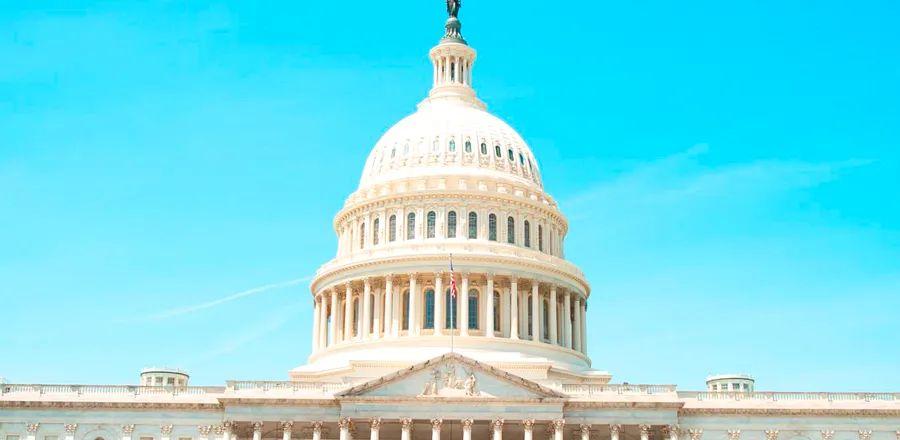U.S. Maintains COVID Vaccine Requirement for International Arrivals

It feels like ages ago (or maybe just yesterday?) that we were concerned about vaccine passports and navigating the new norms for international travel during the pandemic. However, many countries have eased their COVID testing and vaccination mandates as public health threats have diminished, thanks to rising vaccination rates, immunity from previous infections, and greatly enhanced treatments. Yet, the United States remains one of the last countries to mandate vaccination for foreign arrivals, with the White House recently confirming that it will continue to uphold this requirement for the time being.
This confirmation comes amidst increasing demands for the U.S. to lift the vaccine mandate, which applies to all foreign visitors entering the country—it does not affect U.S. citizens returning from abroad. This includes a bill to repeal the vaccine mandate recently passed by the U.S. House of Representatives.
“Although COVID-19 is no longer the severe threat it used to be, the Administration opposes any Congressional efforts to revoke the vaccination requirement for noncitizen nonimmigrants flying into the United States. This policy has facilitated family reunions globally while minimizing COVID-19 transmission and the resulting strain on the U.S. healthcare system,” the Administration stated.
This policy originated in October 2021, when President Joe Biden replaced the previous country-specific COVID-19 restrictions with a “global air travel policy that primarily focused on vaccination to safely resume international travel to the United States.” The new comprehensive approach was crafted based on recommendations from the U.S. Centers for Disease Control and Prevention (CDC), the Administration emphasized.
Last week, President Biden notified Congress of his intention to conclude the dual national emergencies related to COVID-19 on May 11, as reported by the Associated Press. Former President Donald Trump first declared a public health emergency on January 31, 2020, and later designated the COVID-19 pandemic as a national emergency in March 2020. These emergencies have been extended multiple times and are now set to expire on May 11.
“As we near the conclusion of the public health emergency, the Administration will evaluate all pertinent policies, including this one,” the White House stated regarding the vaccine requirement for foreign visitors. “Just as the establishment of this public health policy was informed by science, any termination or alteration of this policy should adhere to that principle.” The statement remarked that the Congressional bill aimed at abolishing the vaccine mandate for travel “undermines that essential principle.”
The U.S. Travel Association, an organization based in Washington, D.C., representing the U.S. travel industry, has also urged the government to remove the vaccination requirement. In a press conference held last week in Washington, the group highlighted its key priorities for boosting the travel economy, including the elimination of the vaccination requirement for international visitors.
Extended visa wait times for incoming travelers to the USA are also a significant barrier
Another critical priority for U.S. Travel is collaborating with federal agencies to reduce wait times for international travel visas. Average interview wait times for the top 10 inbound markets that require a visa to enter the United States (excluding China) exceed 400 days, according to U.S. Travel. Meanwhile, the association notes that global average wait times have fallen below 150 days for the first time since 2021.
Currently, only 40 countries are part of the United States’ Visa Waiver Program, primarily consisting of nations in Europe and select Asian destinations such as Japan, Singapore, South Korea, and Taiwan. Travelers from all other countries, which account for 43 percent of foreign visitors to the United States, must undergo a visa interview and obtain a visa.
Geoff Freeman, president and CEO of U.S. Travel, informed reporters that the current wait time for Mexican citizens is 549 days, while Colombian citizens face an even longer wait of 872 days.
“It’s essentially a de facto travel ban,” Freeman stated during last week’s press conference.
To help reduce wait times, the U.S. State Department has launched a “Super Saturdays” initiative, allowing embassies and consulates to open on Saturdays for visa processing. However, U.S. Travel reports that wait times remain “still excessively high despite significant improvements in countries like India.” The association estimates that the U.S. economy lost $5 billion in travel spending due to visa delays last year, and anticipates a potential loss of 5 million travelers and $7 billion in spending this year if conditions do not improve.
Laura Dannen Redman contributed reporting.

1

2

3

4

5
Evaluation :
5/5